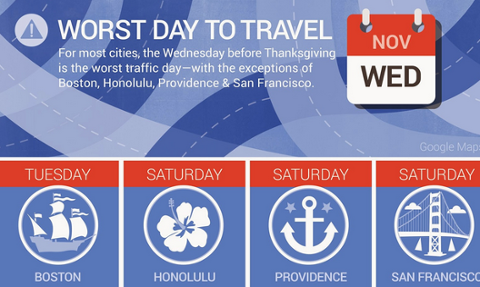Google's Century-Long Survey Offers Management Tips
Google wants to conduct a century-long survey of its employees. That’s an ambitious goal, to put it mildly—most companies don’t think much beyond the next few quarters, if that. But Google feels that, if it can run twice-annual surveys of 4,000 employees through 2114 or so, it can gain some profound insights into the long-term effects of corporate decision-making. Click here to find more HR jobs. “We ask about traits that are static, like personality; characteristics that change, like attitudes about culture, work projects, and co-workers; and how Googlers fit into the web of relationships around all of us,” Laszlo Bock, SVP of People Operations at Google, wrote in a guest column for the Harvard Business Review. “We then consider how all these factors interact, as well as with biographical characteristics like tenure, role and performance.” Bock and company hope to use that data in the short-term to improve employee wellbeing and leadership. For example, early results from the survey suggest that a third of Google employees are able to “segment” their work and personal lives, while others can’t draw that line. “The fact that such a large percentage of Google’s employees wish they could separate from work but aren’t able to is troubling, but also speaks to the potential for this kind of research,” Bock added. “By identifying where employees fall on this spectrum, we hope that Google can design environments that make it easier for employees to disconnect.” Over a longer period of time, in theory, the survey can surface even more useful data about employee behavior and performance. Google refers to its study as “gDNA,” and Bock wants to draw clear parallels between the company’s efforts and long-term medical investigations that monitor patients over a course of several years. But the latter often follow the same group of people for decades, if not their whole lives, while employees have a tendency to leave their company after much shorter periods; given the churn among the latter, can Google’s study offer the degree of scientific rigor associated with physician-driven projects? For example, is there a control group of some sort that Google can use to determine the validity of any trends it discovers? That’s a question for the ages (literally, if the study continues as long as Google anticipates), but in the interim, there’s much the company can do with information gleaned from its employees. As Bock put it in his column: “The data from gDNA allows us to flex our people practices in anticipation of our peoples’ needs.” For companies that aren’t Google, some of gDNA’s lessons still stand: data (whether employee surveys, or just an analysis of existing database information) can greatly inform decisions regarding retention, efficiency, and even daily operations. There’s no reason to simply rely on intuition; with experimentation, any organization can improve itself.


